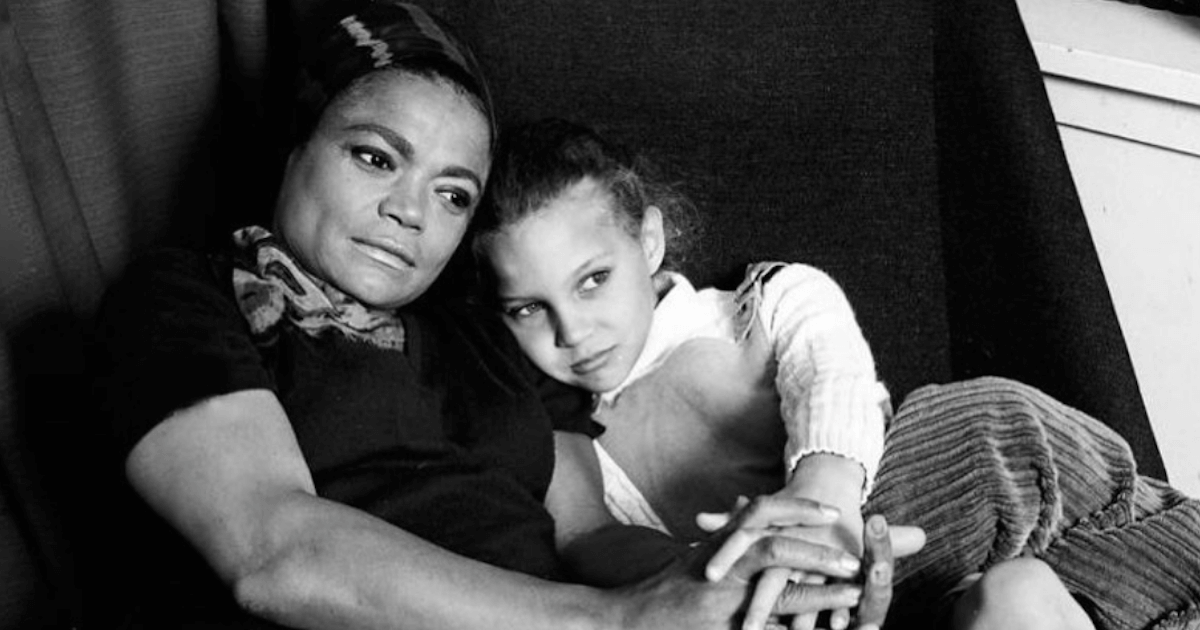Eartha Kitt & Colon Cancer
- Singer Eartha Kitt died in December 2008 after a battle with colon cancer; her daughter shared a picture of the two and encouraged people to hug their loved ones.
- Colon cancer often progresses slowly, so it’s important to screen regularly for this disease.
- Screening for colon cancer is especially important if there is a history of colon cancer in your family.
Kitt McDonald posted a picture of her and her mom to Instagram, sharing a quote from late comedian George Carlin that is a perfect tribute:
Read MoreMcDonald honoring her late mother reminds us that colon cancer is still prevalent the American Cancer Society (ACS) cites that there are 104,610 new cases of colon cancer each year in the U.S.
Related: How Does a Colon Polyp Turn into Cancer?
The good news is that the death rate from colon cancer has decreased in both men and women over the past several decades. Still, we need to educate ourselves about the disease and make sure we talk to our parents and grandparents as well as our kids so that family history is out in the open.
Understanding Colon Cancer
Colon cancer is often grouped together with rectal cancer, because of the similarities of the two cancers. It often starts due a maligninancy in the cells in your colon.
- Colon cancer progresses slowly (this is why screening is so important).
- If there is a history of colon cancer in your family, it’s important to get screened early. Ideally, you will should get screened for the disease 10 years before the time your family member had colon cancer. (I.e. if you mom was diagnosed with colon cancer at age 42, you should screen for the disease when you are 32.)
- If you’re concerned about developing colon cancer, you can speak with a genetic counselor or a colorectal surgeon, who can help determine whether or not you have a high risk of having this disease.
- Polyps can lead to colon cancer. “A polyp,” Dr. Heather Yeo tells SurvivorNet, “is a small growth in the colon that is not yet cancerous, but has the potential to grow into cancer.” Dr. Yeo says it generally takes about 10 years for a polyp to grow into cancer.
- During a colonoscopy, the gastroenterologist looks at the inside of your colon to see if there are any polyps. Dr. Zuri Murrell tells SurvivorNet, “A polyp that is found during a colonoscopy is removed, which can actually prevent the development of cancer. A pathologist determines if it is a benign polyp or if it is colon cancer. Almost all polyps that are removed are precancerous, meaning that they have not yet progressed to cancer.”
Screening for Colon Cancer
For these reasons, screening for this cancer is especially important. Dr. Yeo tells SurvivorNet that “Colon cancer is considered a silent and deadly killer. What happens is people often don’t know that they have colon cancer. They don’t have any symptoms. That’s why we screen for colon cancer in the United States.”
Colon cancer screening is critical, and can lead to prevention or mitigation of the disease. People should begin screening at age 45, and continue every 10 years onward.
The most effective way to screen for colon cancer is by getting a colonoscopy. But, there are other methods for screening, too.
It’s important to do these screenings when you hit age 45, or to do them earlier, if you have a history of colon cancer in your family. Understanding your body and your family’s health history will empower you to take the right steps for your body and your wellness.
Colon Cancer Screening Options And Genetics: Myth Busting With Dr. Heather Yeo
Learn more about SurvivorNet's rigorous medical review process.


